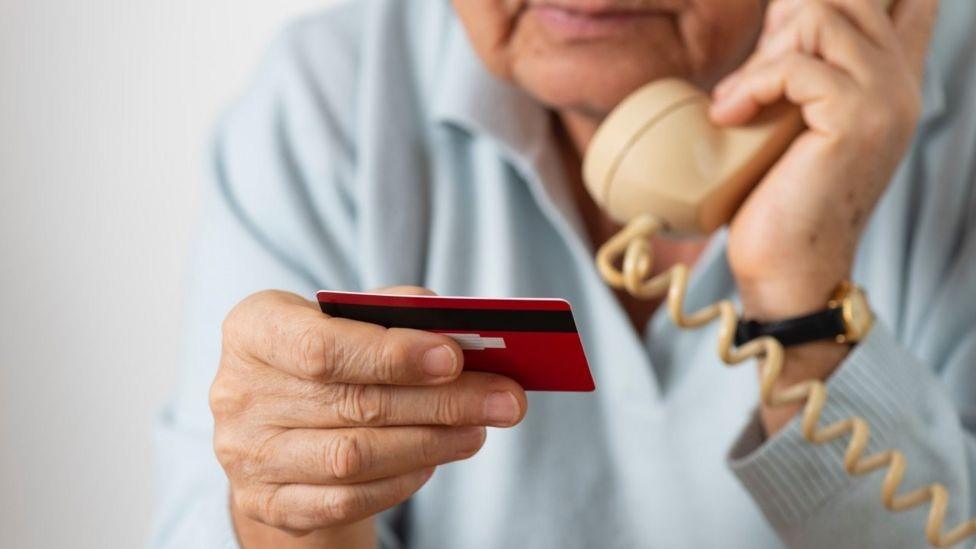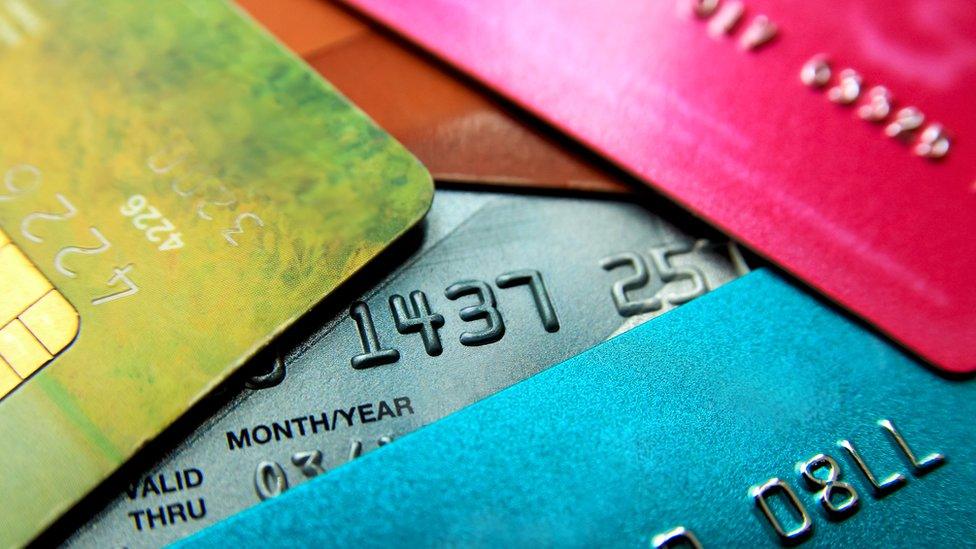Don't trust caller ID on phones, says Ofcom
- Published
Reporter Dan Whitworth was phoned by a fraudster and managed to record the call
The UK telecoms regulator is warning the public not to trust caller ID on their phones as it tries to help stop people becoming victims of fraud.
Speaking to BBC Radio 4's Money Box, Huw Saunders, a director at Ofcom, says caller ID should not be used as a means of verifying a caller's identification.
Fraudsters are increasingly changing their caller ID to disguise their identity, known as number spoofing.
"This problem is global in its scope," says Mr Saunders.
"It's an unfortunate place to be in, but the same message is being given by our counterparts in the US, Canada, France, Australia and elsewhere."
However, he admits the UK is behind other countries, such as the US, in tackling the problem.
"They [the US] are ahead of the UK, but that's not an issue that can be solved overnight.
"It's going to take a few years. If you look at a comparable situation in France, for example, they now have a timetable for the implementation of a particular technical solution and that is over a three-year period."
In the UK, the current phone network (Public Switched Telephone Network) is being updated to a new system - Voice Over Internet Protocol, or VOIP.
Mr Saunders says when VOIP is fully in place, with a target date of the end 2025, the industry will be able to stop number spoofing.
"It's only when the vast majority of people are on the new technology (VOIP) that we can implement a new patch to address this problem [of spoofing]."
Despite other attempts by the telecoms industry to stop number spoofing, a recent report, external from industry body UK Finance suggested the number of reported cases of impersonation fraud - including spoof calls - nearly doubled last year to 40,000.
However, the real figure is likely to be much higher, because many victims won't report fraud to their bank or building society, or even tell their family or friends, because of feelings of embarrassment or guilt.
Each case can involve the theft of thousands or even tens of thousands of pounds, leaving the financial, and emotional, lives of victims ruined.
What is number spoofing?
Ofcom describes number spoofing, external as people who deliberately change the telephone number and the name that is relayed as the Caller ID information.
Ope Oladejo, a 21-year-old law student, had nearly £2,000 stolen from her last summer - money she'd been saving whilst working as a carer for help pay for a law course.
"The number spoofing was the most important part [of the deception]," she told the BBC.
"At first I was a bit sceptical... but they said: 'Check the number [we're calling you on] on the back of your card'.
"I checked and it matched and that's when I let my guard down completely."

Ope Oladejo had nearly £2,000 stolen from her by criminals who spoofed her bank's phone number
Because the criminals had convinced Ope she was speaking to her bank, they were able to get key details and information from her, which allowed them to steal the money.
Thankfully, the money was refunded by Ope's bank and she has been able to continue her studies, but she says the incident hit her hard.
"Emotionally it just made me really sad, I just cried a lot about it," she says.
"Financially, I think it made me smarter," adds Ope. She now ignores any phone calls that don't come from her friends and family.
You can hear more on this story from BBC Radio 4's Money Box by listening again here.
Follow Money Box, external and Dan, external on Twitter.
Related topics
- Published27 March 2021

- Published24 March 2021

- Published23 March 2021

- Published25 January 2021
